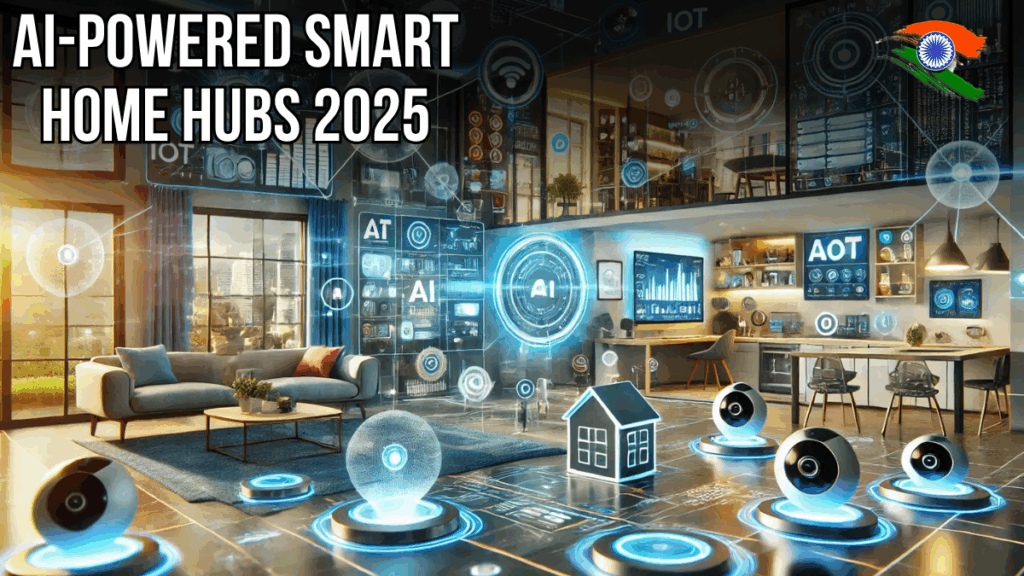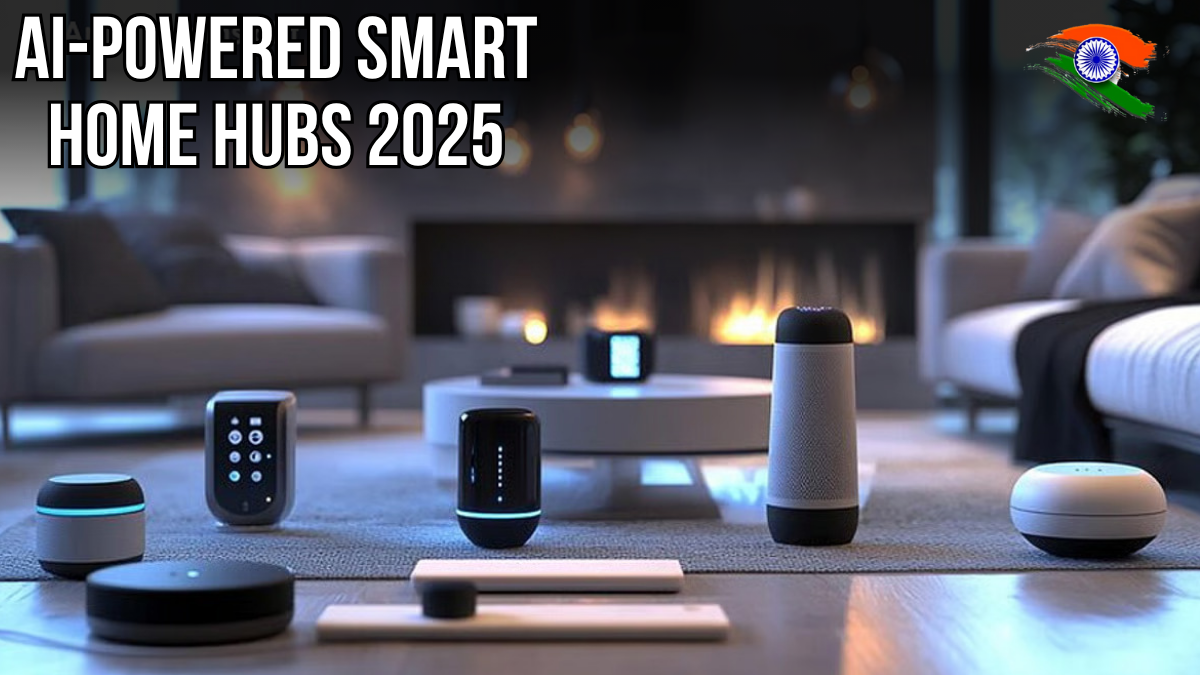As artificial intelligence continues to evolve, its impact on home automation is becoming increasingly profound. In 2025, AI-powered smart home hubs are revolutionizing how we interact with our living spaces. These hubs go far beyond basic voice commands, offering personalized automation, predictive responses, enhanced security, and seamless integration with a growing ecosystem of smart devices.
In this article, we’ll explore the latest advancements in AI-powered smart home hubs in 2025, compare leading models, discuss key features, and answer the most common user questions.
Key Features of AI Smart Home Hubs in 2025
Feature |
Description |
|---|---|
AI Learning Capabilities |
Adapts to user preferences and routines over time |
Voice & Gesture Control |
Supports natural language and hand gesture recognition |
Multi-Device Compatibility |
Works with a wide range of IoT brands and ecosystems |
Advanced Security Features |
Face recognition, voice ID, and anomaly detection |
Energy Efficiency Automation |
Optimizes energy usage based on habits and weather |
Personalized Notifications |
Sends context-aware alerts to users via phone or hub display |
Cloud & Edge Processing |
Balances local responsiveness with cloud-based intelligence |
Multi-Room Awareness |
Adjusts settings based on room-specific occupancy and preferences |
What is an AI-Powered Smart Home Hub?
An AI-powered smart home hub is a centralized device that uses artificial intelligence to control and coordinate various smart home gadgets, including lighting, security systems, thermostats, entertainment systems, and more. Unlike traditional hubs, AI-powered hubs adapt to user preferences, learn from daily routines, and provide proactive assistance.
These hubs are designed to act as the brain of the smart home, offering:
- Natural language processing for better voice recognition
- Machine learning to learn user behaviors
- Predictive automation
- Context-aware suggestions
Top AI-Powered Smart Home Hubs in 2025
1. Amazon Echo Quantum
- Powered by Alexa GPT, a generative AI model
- Adaptive routines based on mood and tone of voice
- Supports 200+ smart home brands
- Edge AI chip for offline processing
2. Google Nest Core AI
- Deep integration with Google Assistant 3.0
- Predictive controls for lighting, HVAC, and media
- Real-time translation and voice recognition for each family member
3. Apple HomePod Ultra
- Uses Siri Intelligence+ for proactive home suggestions
- Deep privacy controls and on-device learning
- Seamless integration with iOS, macOS, and HomeKit devices
4. Samsung SmartThings AI Hub
- Enhanced compatibility with Matter, Zigbee, and Z-Wave
- Customizable automations with AI scripting
- Built-in security monitoring and fire detection
5. Aeotec AI Guardian
- Budget-friendly option with advanced learning features
- Open-source integrations for developers
- Compact design for apartments and small homes
How AI Enhances Smart Home Experiences
The AI component is what sets these 2025 smart hubs apart. Here’s how artificial intelligence transforms smart homes:
- Predictive Automation: AI anticipates your needs. For example, it may preheat the oven when it detects you entering the kitchen at dinner time.
- Context Awareness: Based on time, weather, location, and even emotional tone, the hub adjusts lighting, temperature, or music accordingly.
- Security Optimization: If an unfamiliar face is detected or a window is left open, the hub can notify users or take corrective actions autonomously.
- Energy Efficiency: AI reduces power usage by optimizing device activity, reducing costs and environmental impact.
- Routine Adaptability: If your work-from-home schedule changes, the hub can adjust climate controls and lighting accordingly without manual input.
Benefits of AI-Powered Smart Home Hubs
- Convenience: Automates repetitive tasks without user input
- Safety: Enhances home security through smart surveillance and alerts
- Cost Savings: Lowers utility bills through energy management
- Accessibility: Assists elderly or disabled users with voice commands and smart routines
- Customization: Learns from the household and offers unique settings for each member
Privacy and Security Considerations
As smart home hubs gain intelligence, privacy concerns are on the rise. Reputable brands are addressing this with:
- On-device AI processing to limit cloud dependency
- Encrypted communication between devices
- User-controlled data permissions and opt-out settings
Buyers should look for certifications like ISO/IEC 27001 for data protection and compatibility with Matter and Thread for enhanced local networking.
Use Case Examples
Scenario 1: Morning Routine
- The hub gradually turns on lights, starts the coffee machine, plays your news briefing, and sets the temperature to your preference—all based on your calendar.
Scenario 2: Away Mode
- When you leave home, the hub locks doors, adjusts thermostats, turns off lights, and activates motion sensors automatically.
Scenario 3: Elderly Care
- Monitors movement patterns, offers voice assistance, and notifies caregivers in case of irregular activity.
Future Trends in AI Smart Homes
Looking ahead, AI in smart home hubs will likely expand into:
- Emotion AI to detect stress or mood from voice tone
- Multi-modal interaction using voice, gesture, and facial expressions
- AI scheduling assistants that coordinate household activities across members
- Integrated robotics for physical assistance in homes
Frequently Asked Questions (FAQs)
Q1: Do AI-powered smart home hubs require an internet connection?
A: Most features work best online, but many hubs offer offline AI processing for essential tasks.
Q2: Can these hubs work with devices from different brands?
A: Yes, most 2025 hubs support Matter and other protocols for wide compatibility.
Q3: How secure are AI smart home hubs?
A: Leading models use encrypted data, local processing, and strict access controls.
Q4: Are they suitable for renters or small apartments?
A: Yes, compact hubs like Aeotec AI Guardian are designed for smaller spaces.
Q5: Will the hub work with old smart devices?
A: Many hubs are backward-compatible but check for Matter/Zigbee/Z-Wave support.
Q6: How much do AI-powered hubs cost in 2025?
A: Prices range from $99 to $399 depending on features and brand.
Conclusion
AI-powered smart home hubs in 2025 are transforming daily living by making homes more intuitive, secure, and efficient. From automating routines to learning individual preferences and enhancing safety, these devices represent the future of connected living. With the right hub, your home can become a truly intelligent environment that adapts to you.
As technology advances, investing in an AI-powered smart home hub is not just about convenience—it’s about building a smarter, safer, and more sustainable lifestyle.
Click Here For More..






